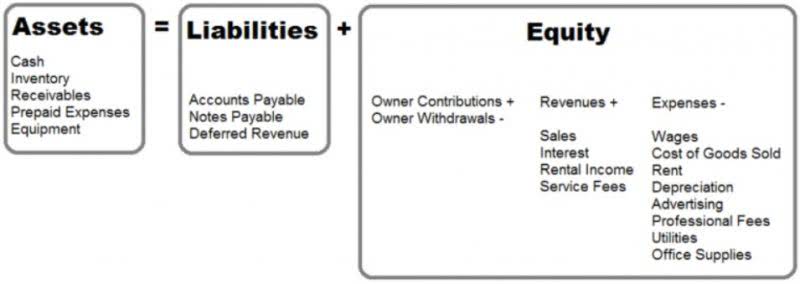
For example, a company that discloses its carbon https://universoaquera.com/2020/10/15/9-3-activity-based-costing-financial-and/ emissions can demonstrate its commitment to sustainability and attract investors who prioritize ESG factors. Non-financial disclosures can also help investors identify potential risks and opportunities that may not be reflected in financial statements. Real-world examples illustrate the importance of transparency in financial reporting and the impact of ethical practices on stakeholder trust and corporate success. Another significant example involves WorldCom, a telecommunications giant that collapsed due to fraudulent accounting practices. A transparent approach would have involved openly reporting financial data, including all liabilities and debts.
Key elements of transparency in accounting for small businesses
- The U.S. Securities and Exchange Commission (SEC) is the federal government agency responsible for regulating the financial reporting for corporations.
- Implement robust accounting systems, maintain regular financial reporting, adopt clear communication practices, conduct regular audits, and educate the team on the importance of transparency.
- In addition to GAAP, the SEC has other requirements for publicly traded companies that enforce transparency and safeguard investors from fraud.
- The Financial Times reported on recent announcements from the International Accounting Standards Board that more stringent accounting requirements were on the way.
- Full Circle Accounting is gaining attention for its potential to enhance transparency and improve decision-making processes within organizations.
Companies must also file an annual report as well as interim reports such as 8Ks, which contain pertinent financial information and developments. Below are some of the financial statements required by the SEC as outlined in their Financial Reporting Manual. The U.S. Securities and Exchange Commission (SEC) is the federal government agency responsible for regulating the financial reporting for corporations. A 13-week cash flow forecast is a financial planning tool designed to help businesses project and manage their cash inflows …
Transparency’ in Accounting and Corporate Governance: Making Sense of Multiple Meanings
- While there are valid arguments on both sides, it is clear that transparency and accountability are becoming increasingly important for companies in all industries.
- For example, investors may use financial statements to evaluate the financial health of the company and make investment decisions.
- Implementing GAAP might seem like overkill for small businesses, but it’s one of the smartest moves you can make for long-term success.
- Implementing these standards requires meticulous attention from accounting professionals, who must ensure compliance while considering the strategic implications of reporting changes.
- This principle demands that small business owners present their financial records honestly and completely, allowing investors, regulators, employees, and partners to make informed decisions based on reliable data.
By providing more comprehensive disclosures on their ESG practices, companies can build trust with stakeholders and demonstrate their commitment to long-term sustainability. Financial reporting is essential for effective business management and investor relations, providing stakeholders with insights into an organization’s performance and financial health. Inaccuracies or lack of transparency can lead to misinformed decisions, eroding trust and potentially causing financial repercussions. At its core, the principle of transparency means presenting transparency in accounting all relevant financial information openly and without distortion. It requires businesses to disclose not only the successes but also the challenges and risks they face in their financial statements. Transparency ensures that financial reports are both accurate and complete, leaving no room for hidden obligations or manipulated figures.
How Transparent Accounting Leads to Smarter Decisions
- The best financial decisions are made when those who crunch the numbers are distinct from those who set an organization’s strategy.
- A forecast that’s been created without a full picture of what’s already happening will be an irrelevant one at best.
- The standards ensure consistency, accuracy, and transparency in how companies report their financials.
- When financial data is open, accurate, and easy to interpret, it signals a lower risk profile.
- We used Jordan as an example in our study, as we chose 20 listed companies in Amman Stock Exchange as a sample for this study.
- Investors, consumers, and regulators are increasingly demanding greater transparency, and companies that fail to provide this information risk losing credibility and market share.
A key feature of Full Circle Accounting is its reliance on real-time data integration. In today’s fast-paced business environment, accessing current financial information is vital. This approach leverages advanced technologies such as cloud-based platforms and AI-driven analytics to enable continuous data flow. Real-time access facilitates dynamic analysis, allowing organizations to respond swiftly to market changes and internal financial shifts. Accounting standards influence the consistency and comparability of financial statements. Standards like the International Financial Reporting Standards (IFRS) and Generally Accepted Accounting Principles (GAAP) provide a structured framework for preparing and presenting reports.
By applying these guidelines, small business owners can instill confidence in their teams, investors, and customers and are better positioned to secure funding and strategic partnerships. Understanding and implementing these principles, sometimes with the support of professional advisory services, empowers entrepreneurs to navigate complex financial situations with clarity, confidence, and integrity. Transparency is crucial because it builds trust with stakeholders, improves financial decision-making, and ensures compliance with legal requirements.
Financial Reporting: The Importance of Corporate Transparency
Transparency in accounting is highly important for investors, but it’s equally important— if not moreso— to the company itself. Any United States publicly traded company is required to adhere to GAAP’s 10 principles. GAAP, or Generally Accepted Accounting Principles, is a generally accepted set of standards, rules, and procedures established to regulate corporate accounting and prevent fraud. Following these principles as intended creates a level of transparency achieved through consistency, diligence, and integrity. To learn more about each of the 10 principles and what they mean, you can check out our GAAP Accounting blog.
Internal Controls and Compliance
Financial decisions are typically made based on an assessment of a financial situation. Small business owners often wear many hats, but the need to scale eventually prompts the need to delegate certain roles and functions. Dive deep into how data can transform What is bookkeeping your decision-making process, leading to improved performance, better…

GAAP provides a standardized, reliable view of your financial health, while non-GAAP offers a closer look at what drives your business forward. By mastering both, you can make more informed decisions and present a more precise picture to investors and stakeholders. Off-balance sheet items, though not directly reflected on the balance sheet, significantly impact understanding a company’s financial commitments and risk exposure. Leases, for instance, require disclosure under IFRS 16 and ASC 842, providing a clearer view of long-term lease commitments and impacting financial ratios.
A Guide To Financial Audits: Creating Transparency In Business Operations
You need transparency to ensure accuracy, and you need accuracy to ensure effective strategy. CFOs, Controllers and anyone else tasked with stewarding a business’s assets can’t do that well – and they certainly can’t make impactful, growth-minded moves besides – if they don’t have a clear picture of where the risks are. A forecast that’s been created without a full picture of what’s already happening will be an irrelevant one at best.

Assessing Financial Statement Reliability
A government’s source of revenue may be different from that of a business, but both share the same financial objectives. And a well-run government can decrease taxes, which is the equivalent of a dividend payout. Regular audits, both internal and external, uncover discrepancies and areas needing improvement. Focusing audits on high-risk areas ensures resources are allocated effectively to address potential issues before they escalate. In summary, the survey results showed that enhanced accounting transparency results in improvements in corporate management performance and contributes to economic policy performance. Consistency in applying accounting methods from one period to the next is crucial for meaningful comparisons over time.